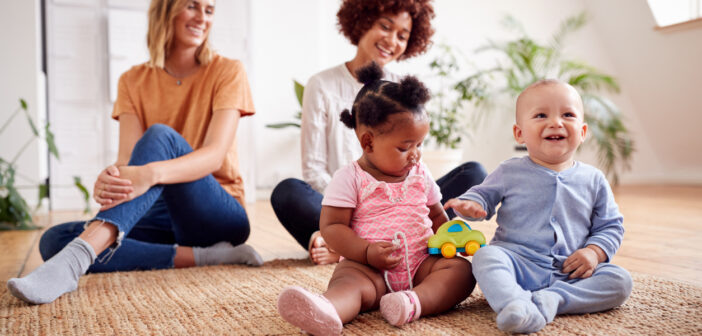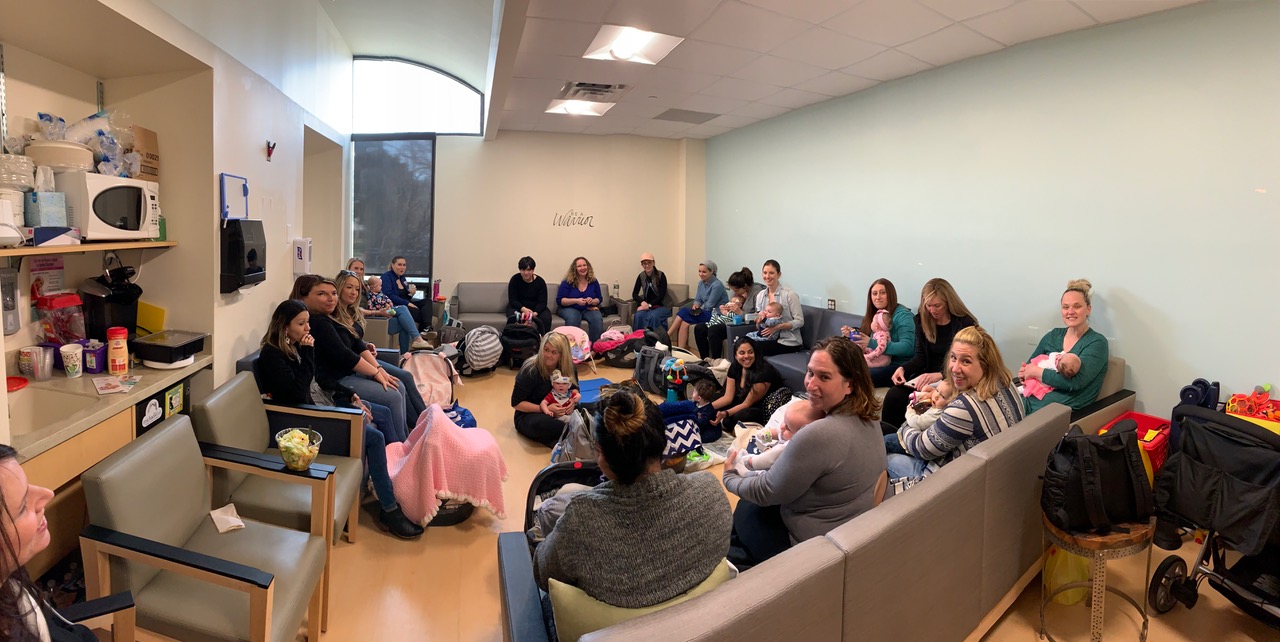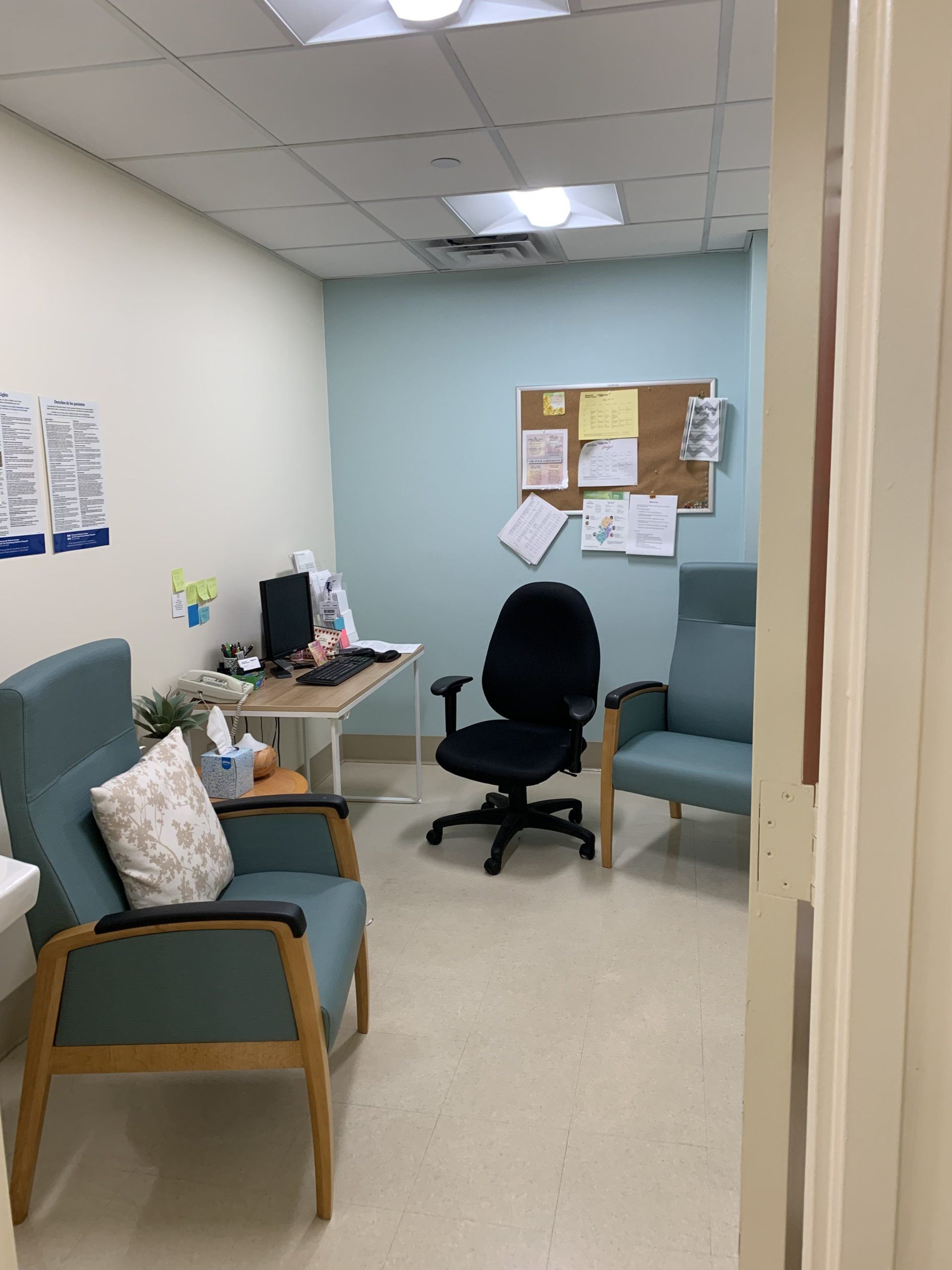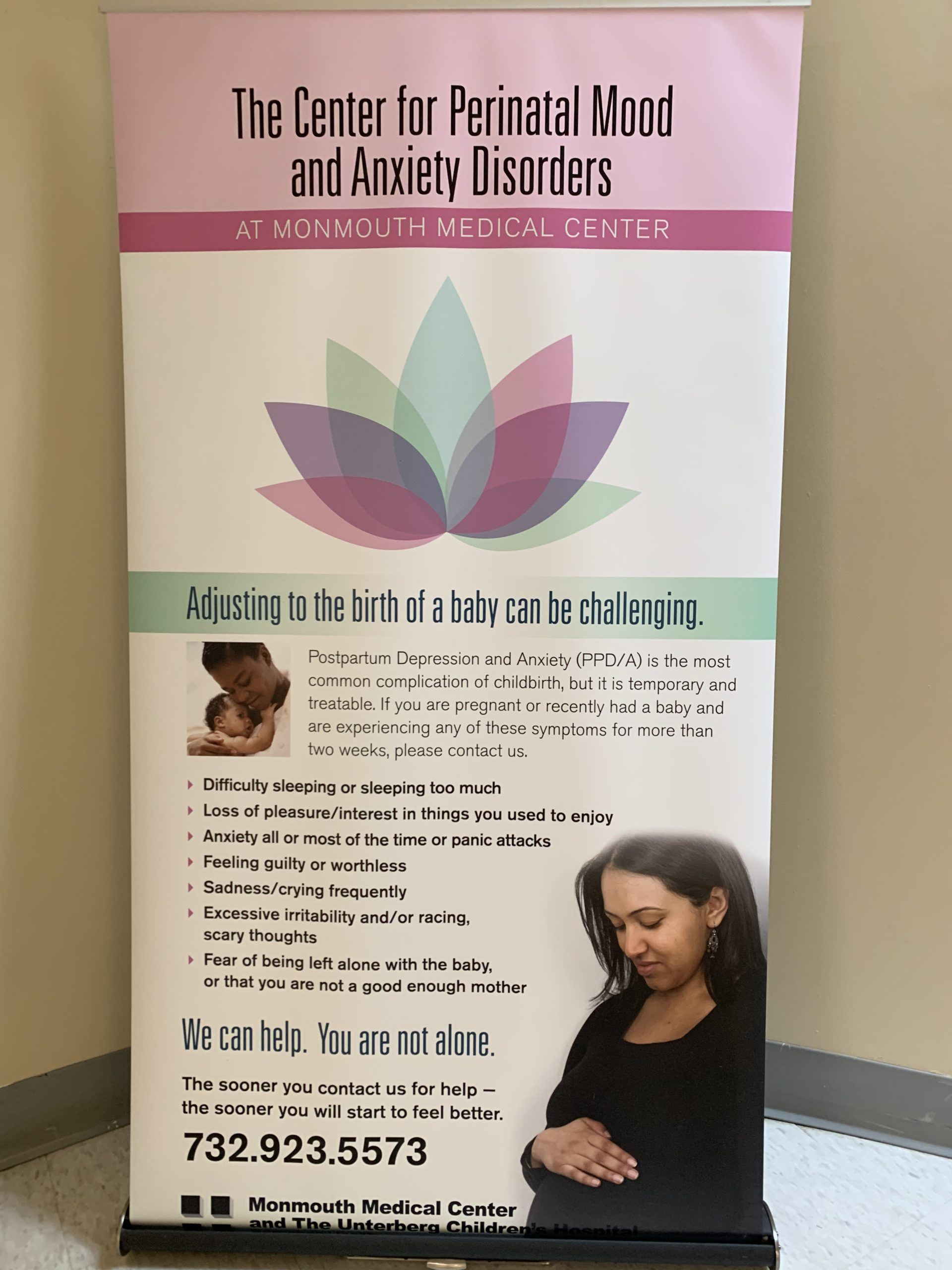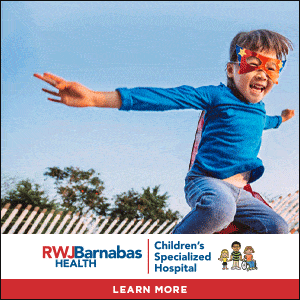After losing our first daughter due to birth complications in 2014, followed by a subsequent miscarriage, I struggled in my pregnancy and postpartum periods with extreme anxiety and intrusive thoughts. I never even heard the term “intrusive thoughts” before I had them: a constant, unrelenting loop of disturbing, graphic thoughts and images (mine, mostly centered around death, which made sense given my trauma). It was only when my therapist identified what they were, why I was having them, and how common they were for postpartum women, that I felt some sense of relief and understanding. Knowing that I wasn’t alone and that I had support helped guide me through these feelings.
I heard that same thing from each of the moms I met during NJMOM’s recent visit to the Center for Perinatal Mood & Anxiety Disorders (PMAD) at Monmouth Medical Center— where they are getting that crucial support every day, and you can feel it from the moment you walk in. Signs reading ‘you can do this‘, ‘you are strong,’ and ‘the sisterhood of motherhood‘ paint the walls—and you know you’ve come to a place that’s focused on helping moms feel better, feel supported, and know they’re not alone. And then, watching the hugs, the tears and the laughter – you understand just how deeply needed a place like the PMAD Center at Monmouth Medical Center is truly needed.
At Monmouth Medical Center in Long Branch, an RWJBarnabas facility, there’s a first-of-its-kind program in our state that’s giving moms the tools and support they need to get through the intense emotional challenges of motherhood. Whether it’s a pregnant or postpartum mom who’s struggling with anxiety or depression, a mom who’s experienced pregnancy or infant loss, a woman who’s undergoing infertility treatment – the Center for Perinatal Mood & Anxiety Disorders (PMAD) is there to help. It’s the only program in the state that offers individual and group therapy for all of these women, as well as supportive programs like sleep and feeding education for new mamas.
As we toured the center, talking with women about the ways it has helped them come out of a dark, scary place, I hugged them in understanding— as I have been there, too.
Maternal mental health nurse Lisa Tremayne, a postpartum depression and anxiety survivor herself, started the program in 2015. Since then, it’s grown from a small one-room operation to a multi-disciplinary program that saw about 4,000 visits in 2019. Yet, it’s the only one like it in New Jersey, and one of only about 20 nationwide. With postpartum depression and anxiety being the number one complication of childbirth, affecting approximately one in seven women, it’s incredible a center like this isn’t more common. Lisa says moms travel from every end of the state for the immersive help the program offers. The moms we spoke to say thanks to that help, they’re feeling better and are now in a place to be able to offer support to moms who are newly struggling.
Motherhood is an all-consuming, exhilarating, beautiful adventure that brings joy, laughter, love and challenges at every turn. What makes it even more complicated is that every single mother’s journey with herself and her children is different. Mental health, and the role our hormones play in the postpartum period, is such a huge component for how the transition to life with a new baby (whether it’s your first or fourth) plays out. Knowing you have a place like the PMAD Center to turn to is so important, and Lisa and her team are on a mission to make sure every #NJMOM knows about this crucial resource.
For more information about the Center for Perinatal Mood and Anxiety Disorders at Monmouth Medical Center, please visit them at 300 Second Avenue in Long Branch, or call 732.923.5573.
This post is sponsored by RWJBarnabas Health— who are committed to helping moms get back on their feet faster after childbirth.

